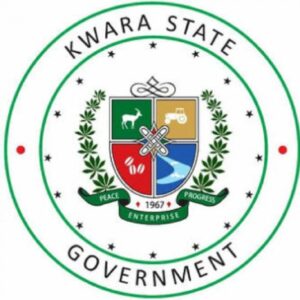
Participation in pandemic treaty will strengthen Nigeria’s healthcare system – Minister
The Minister of Health, Dr Osagie Ehanire said that Nigeria’s participation in the Pandemic Treaty would strengthen her healthcare system as well as build resistance against pandemics .
Ehanire made this known at a High-Level Meeting on Nigeria’s Engagement on the Pandemic Treaty and IHR Amendment on Tuesday in Abuja.
The minister said the rapid spread of COVID-19 had shown that global health threats cannot be contained by one country alone and that international cooperation was essential to prevent and respond to pandemics.
Ehanire said: “The pandemic treaty is an ongoing effort to improve preparedness and response to future pandemics by promoting international cooperation and coordination .
“This treaty also aims to ensure that all countries are better equipped to deal with the next pandemic reducing the impact on health systems economies and societies .
“As a country with a large population and a vital role in West Africa, Nigeria must play a significant role in the pandemic treaty process .
“Nigerian government must engage in these negotiations to ensure that citizens are adequately protected from future pandemics and that the country can contribute to global health security. ”
Ehanire said that Nigeria’s pandemic treaty participation had many benefits, adding that the country can adapt the treaty’s provision to suit her needs as well as protect the citizens against pandemics .
He added that Nigeria could ensure access to vaccinations and medicines by engaging in treaty discussions. .
“Nigeria can improve global health by negotiating the pact; the deal should strengthen the global health system and pandemic response,”he added.
According to Ehanire, the country has not yet been able to advance a robust contribution to the development of the draft document.
The minister added: “We also as well understand the implications to the sectors of the country, particularly the health security, national security and economy.”
Ehanire said that the objective of the high-level meeting was to articulate and develop a position in collaboration with all the relevant sectors that will be represented at the future INB meetings.
Dr Ifedayo Adetifa, Director-General of the Nigeria Centre for Disease Control (NCDC), who spoke on the International Health Regulations (IHR ) (2005) Amendment: Overview said that ,Nigeria’s role in the pandemic treaty negotiations would strengthen international relationships.
Adetifa said that by working together on global health issues, countries would build trust and cooperation, which would have positive effects on other areas of international relations.
He said that Nigeria was working out modal to have a comprehensive document so as to enhance disease control in the nation.
Dr Emmanuel Agogo, Country Director, Resolve to Save Lives, said the meeting was to discuss about global governance infrastructure for health security after the COVID-19 .
Agogo said that globally, there were systems in place like the IHR 2005 ,helping countries prepare ,detect and respond to pandemic outbreaks.
He said that the WHO and global actors decided that they would strengthen the IHR and develop a global treaty to address pandemics
Agogo said’: “So, what this meeting is to get Nigeria to think about these two documents, the global governance infrastructure.
“We will also have a clear direction based on the experience of COVID-19 on how the country should engage with this global architecture.
“So, what the NCDC highlighted here are some of the changes that are being proposed, so the country still needs to look at these proposed changes .
“The question is that, does the country agree with these ?And if it doesn’t, how do you intend to change it?
“The bottom line is that these documents are zero drafts which all other countries are expected to sit down and look at and see how to negotiate to benefit their people,”



